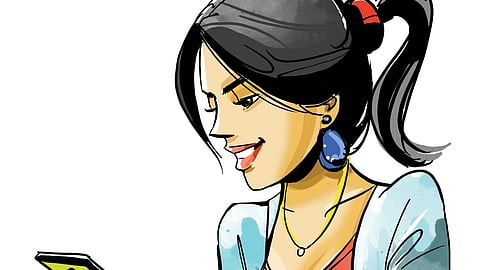

In a time when artificial intelligence is playing a significant role in reshaping various aspects of human life, including education, its arrival has made many raise their eyebrows with concerns. With the rampant use of AI, the line drawn on its limits is still blurry, mostly regarding competitive exams and projects. In light of the recent debate sparked by an IIM Ahmedabad student’s honest confession on using AI to score good marks on his project, Bengalureans opine on the role of AI in education. Is it a threat, or can it be considered a tool that supports learning?
AI is an unavoidable part of our future, and instead of resisting it, we must adapt and learn how to use it wisely. It is not a threat to learning – in fact, it can simplify complex concepts, offer instant feedback, and help in learning concepts better and in a way customised to each student’s approach. However, growing dependence on AI is a concern, as it may reduce critical thinking and effort. The key lies in balance: using AI as a supportive tool, not a substitute for genuine learning. Educational systems too must evolve to include AI responsibly, ensuring students develop both intellectual skills and the ability to leverage technology effectively.
ChatGPT is a paradigm shift in learning, just as calculators and the internet. Tools like ChatGPT are tremendous support tools that, if used properly, can help improve creativity and productivity. The real question isn’t whether students should or should not use AI. Rather, it is how students use AI. Are they using it to help advance their understanding and improve their work, or are they simply outsourcing their thinking? First and foremost, education must adapt to this new tool. We must teach students to co-opt AI, rather than simply limiting their use of it. Learning is about engagement, not just the output!
Academia is at a crossroads today. The incident with the IIM Ahmedabad student sets an interesting precedent. While the student advocated for AI as a convenient means to parse through primary data, his dismissal of the importance of writing and research is worrisome. Students must confront the question of whether they want a good grade with less effort or participate in the arduous task of real learning, which will require their time and energy. The latter is certainly more rewarding. A blanket ban on AI is also not the answer. We predicate this on the understanding that AI is merely a supplementary instrument, and not a substitute for knowledge. At the end of the day, the burden of integrity falls on the students.
I feel in academia, its use must be restricted; the whole point of assignments, projects and exams is to educate, analyse and evaluate students. With AI in the picture, students just need prompts: they don’t need to go through the trouble to study, and this can create a gap in knowledge. It undermines the core of human learning – developing perspectives, forming opinions, interpreting information, and appreciating creativity.
While the IIM Ahmedabad example shows how AI tools like ChatGPT can support higher education students in structuring and presenting their ideas, I believe it’s a different story for younger children. At the primary school level, we must be cautious. This is the age when children are developing their foundational thinking, creativity, and language skills. Relying on AI too early can stunt these essential abilities by offering quick answers instead of encouraging curiosity and problem-solving. Unlike older students, who often have a more mature understanding and capacity to think critically, primary school learners need space to make mistakes, explore ideas on their own, and build their voice, without the influence of AI. At this stage, the goal is not polished output, but the process of learning itself.
When used thoughtfully, AI can enable us to do meaningful work. Take the recent story of the IIM Ahmedabad student, for instance. The A+ wasn’t earned by AI alone. It was the result of real-world observation and thoughtful analysis. In a world where secondary research can be easily automated, education must evolve. As educators at Orchids School, our role is not just to teach students how to use AI, but to help them develop what AI can’t offer: empathy, context, creativity, and lived experience. That’s the future. In that journey, AI is a partner, not a shortcut.
AI has already advanced far beyond what we could have imagined, becoming increasingly user-friendly and beneficial. When used correctly, it’s undoubtedly a powerful supporting tool. However, it’s important to recognise that AI should complement our efforts, not completely replace them. We’re living in an era where embracing AI can simplify our lives, but we should think twice before placing blind trust in it.